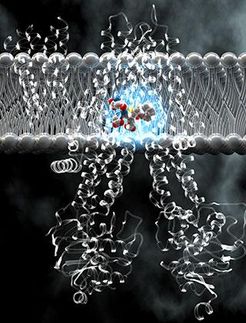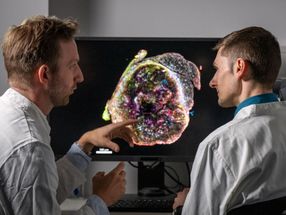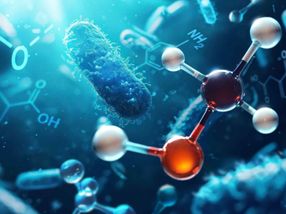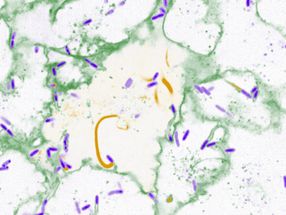Abbott Data Reveals a Promising New Approach in the Fight Against Cancer
New preclinical data published in the current advanced online version of the journal Nature show that an experimental compound, ABT-737, that blocks the action of a class of proteins known as the Bcl-2 family, may prove to be a valuable tool in the fight against cancer. The Bcl-2 family proteins regulate apoptosis (programmed cell death), the natural process by which damaged or unwanted cells die and are cleared from the body. When this process is defective, such as when the Bcl-2 family proteins are present in excess, damaged cells can continue to divide, leading to the Formation and growth of tumors. By restoring programmed cell death, ABT-737 not only enhances the effects of chemotherapy and radiation, but also by itself kills particular tumors such as lymphoma and small cell lung carcinoma.
"With ABT-737, we have seen encouraging preclinical activity. By restoring apoptosis, the compound caused regression of tumors in animal models," said Saul Rosenberg, Ph.D., senior director, Cancer Research, Abbott. "We are particularly encouraged by early results in models of lymphoma and small cell lung cancer, which are very difficult to treat and for which there is a significant unmet medical need for patients."
Using SAR by NMR(TM) (structure-activity relationships by nuclear magnetic resonance), a proprietary technology developed by an Abbott team led by the head of Cancer Research, Stephen Fesik, Ph.D., as well as other methods, Abbott researchers created three-dimensional maps of these intricate proteins and discovered small molecules that bound tightly to the Bcl-2 family of proteins and demonstrated greater potency than any previously discovered compounds.
The data show that ABT-737 binds to the Bcl-2 proteins, and, in effect, restores cell death to cancerous cells. ABT-737 was found to effectively kill certain cancer cell lines, including lymphoma and small cell lung carcinoma. Additionally, Abbott Bcl-2 family inhibitors were found to enhance the effects of chemotherapy and radiation in other types of cancer, such as non-small cell lung cancer.
These discoveries are the result of a scientific collaboration between Abbott and Idun Pharmaceuticals focused on developing small-molecule treatments for cancer specifically targeting the apoptotic pathway. Abbott holds exclusive worldwide rights for compounds resulting from the collaboration that move forward into human clinical testing and is responsible for preclinical and clinical development of any drug leads emerging from the joint program. In addition to Abbott and Idun, several leading academic institutions collaborated on the research, including the Burnham Institute, Howard Hughes Medical Institute, Dana-Farber Cancer Institute and the Abramson Family Cancer Research Institute at the University of Pennsylvania Cancer Center.
Most read news
Topics
Organizations
Other news from the department science

Get the life science industry in your inbox
From now on, don't miss a thing: Our newsletter for biotechnology, pharma and life sciences brings you up to date every Tuesday and Thursday. The latest industry news, product highlights and innovations - compact and easy to understand in your inbox. Researched by us so you don't have to.























































